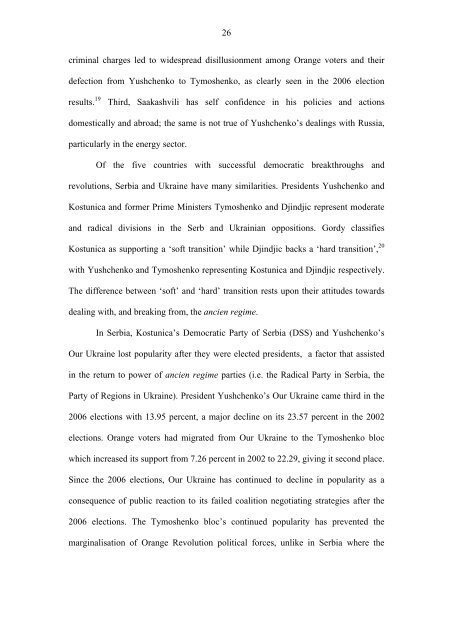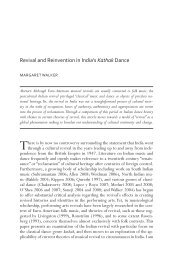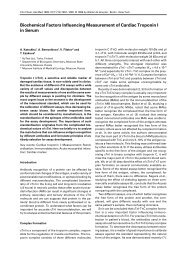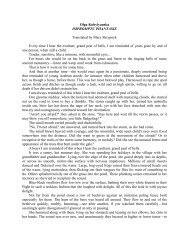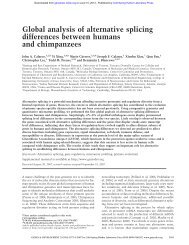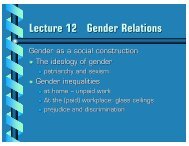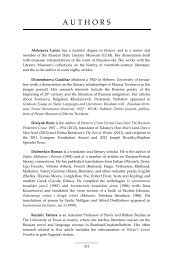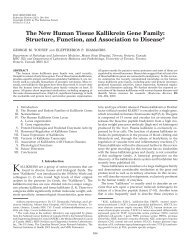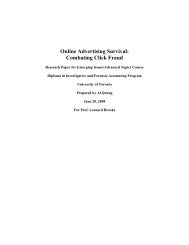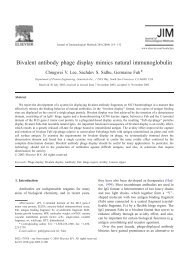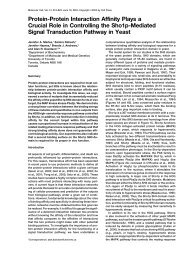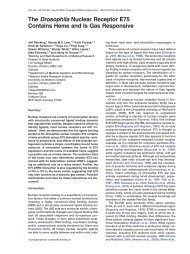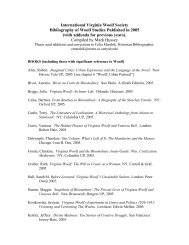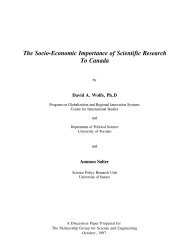Democratic Breakthroughs and Revolutions in Five Post-Communist ...
Democratic Breakthroughs and Revolutions in Five Post-Communist ...
Democratic Breakthroughs and Revolutions in Five Post-Communist ...
Create successful ePaper yourself
Turn your PDF publications into a flip-book with our unique Google optimized e-Paper software.
26crim<strong>in</strong>al charges led to widespread disillusionment among Orange voters <strong>and</strong> theirdefection from Yushchenko to Tymoshenko, as clearly seen <strong>in</strong> the 2006 electionresults. 19Third, Saakashvili has self confidence <strong>in</strong> his policies <strong>and</strong> actionsdomestically <strong>and</strong> abroad; the same is not true of Yushchenko’s deal<strong>in</strong>gs with Russia,particularly <strong>in</strong> the energy sector.Of the five countries with successful democratic breakthroughs <strong>and</strong>revolutions, Serbia <strong>and</strong> Ukra<strong>in</strong>e have many similarities. Presidents Yushchenko <strong>and</strong>Kostunica <strong>and</strong> former Prime M<strong>in</strong>isters Tymoshenko <strong>and</strong> Dj<strong>in</strong>djic represent moderate<strong>and</strong> radical divisions <strong>in</strong> the Serb <strong>and</strong> Ukra<strong>in</strong>ian oppositions. Gordy classifiesKostunica as support<strong>in</strong>g a ‘soft transition’ while Dj<strong>in</strong>djic backs a ‘hard transition’, 20with Yushchenko <strong>and</strong> Tymoshenko represent<strong>in</strong>g Kostunica <strong>and</strong> Dj<strong>in</strong>djic respectively.The difference between ‘soft’ <strong>and</strong> ‘hard’ transition rests upon their attitudes towardsdeal<strong>in</strong>g with, <strong>and</strong> break<strong>in</strong>g from, the ancien regime.In Serbia, Kostunica’s <strong>Democratic</strong> Party of Serbia (DSS) <strong>and</strong> Yushchenko’sOur Ukra<strong>in</strong>e lost popularity after they were elected presidents, a factor that assisted<strong>in</strong> the return to power of ancien regime parties (i.e. the Radical Party <strong>in</strong> Serbia, theParty of Regions <strong>in</strong> Ukra<strong>in</strong>e). President Yushchenko’s Our Ukra<strong>in</strong>e came third <strong>in</strong> the2006 elections with 13.95 percent, a major decl<strong>in</strong>e on its 23.57 percent <strong>in</strong> the 2002elections. Orange voters had migrated from Our Ukra<strong>in</strong>e to the Tymoshenko blocwhich <strong>in</strong>creased its support from 7.26 percent <strong>in</strong> 2002 to 22.29, giv<strong>in</strong>g it second place.S<strong>in</strong>ce the 2006 elections, Our Ukra<strong>in</strong>e has cont<strong>in</strong>ued to decl<strong>in</strong>e <strong>in</strong> popularity as aconsequence of public reaction to its failed coalition negotiat<strong>in</strong>g strategies after the2006 elections. The Tymoshenko bloc’s cont<strong>in</strong>ued popularity has prevented themarg<strong>in</strong>alisation of Orange Revolution political forces, unlike <strong>in</strong> Serbia where the


